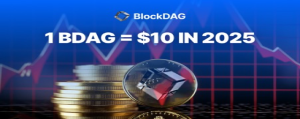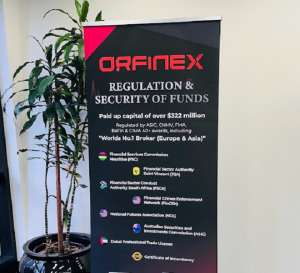Binary options firms still ripping off American customers in their droves, several years after ban
There are a number of brands and platform providers and market makers that are still succeeding in generating a large proportion of revenue by ripping off American customers, despite the strict laws against it.

The United States has a top drawer reputation for consumer protection, and that is absolutely the case when it comes to the regulation of financial services and electronic trading companies that operate within its jurisdiction.
North America’s major financial centers of New York and Chicago both house some of the very largest electronic trading and exchange listed derivatives marketplaces in the world, all of which are a bastion of extremely high technology and operated by large conglomerates whose executive board members are astute, highly experienced and answerable to commissioners within the CFTC and SEC, themselves senior lawyers and government officials.
In the retail electronic trading sector, American customers are protected by not being able to enlist the services of companies based outside the United States, and by the extensive reporting procedures which companies with National Futures Association membership must conduct on a daily basis, as well as the vast capitalization requirements for regulatory purposes.
This all equates to peace of mind, except when a foreign company with anything but good intentions seeks to onboard American customers and relieve them of their hard earned cash by soliciting on American soil a service which is strictly prohibited.
The United States was the very first country to completely ban OTC binary options altogether, insisting that platform providers and market makers from overseas (predominantly Israel) were creating a false market and that this does not represent financial markets activity, thus contravenes the Securities Act and is a serious fraud according to the Securities and Exchange Commission (SEC).
In 2007, the Options Clearing Corporation proposed a rule change to allow binary options, and the Securities and Exchange Commission approved listing cash-or-nothing binary options in 2008. Any provision of OTC binary options from the proliferation of brands that are now the subject of regulatory and government curtailment all over the world as well as mainstream media coverage in top jurisdictions for their fraudulent nature, has been illegal in America ever since.
However, there are a number of brands and platform providers and market makers that are still succeeding in generating a large proportion of revenue by ripping off American customers, despite the strict laws against it.
Not a week goes by when FinanceFeeds does not receive a detailed account from customers, attorneys and consumer interest groups in America, with detailed evidence in writing, showing that America is still a target for these nefarious entities whose methodology stems not from the financial markets or technology sectors, but from the lowbrow depths of online gambling, lead buying and affiliate marketing in Israel.
Three years ago, Banc de Binary, one of the largest brands using the SpotOption platform and market making service, was sanctioned by the CFTC and the SEC for soliciting clients in America for OTC binary options. The case was closed with Banc de Binary paying an $11 million fine.
Despite the high profile of this case, it did not deter firms from continuing.
Today, FinanceFeeds spoke to a consumer affairs group in the United States that has been established in order to seek justice for the members of the public that have fallen foul of this criminal activity, however the interesting aspect here is that the operator of the consumer affairs group is at a complete loss with regard to how the US allows this to prevail when it is strictly illegal.
He cites the platform providers (which are also market makers) and the payment processing firms as major culprits.
“I don’t understand how they are still getting away with it” he explained to FinanceFeeds today.
Based on my research, employees at these Israeli companies are just going to work like it’s no big deal and are ripping people off every day” he continued.
When FinanceFeeds explained that it is a felony to solicit in the US, he replied “A felony? Based on what law and who is going to take them to court? They are running free with no issues. Aside from the Banc De Binary lawsuit in 2013, I see nobody going after these crooks. The brands roam free along with these software binary platform criminals. It’s all crazy to me” he replied.
Indeed, it appears that this may be the case.
There are still a proliferation of websites online that advocate Israeli OTC binary options brands as a ‘good fit’ for American customers.
In February this year, two Israeli binary-options firms, Vault Options, Ltd. and Global Trader 365, were quietly issued with a $3 million civil monetary penalty, plus $1,587,731 in restitution, and have been banned from future trading, for defrauding their customers and violating the Commodity Exchange Act.
This is a very small sum when considering the amounts of capital that are stolen, which instead of trading a live market goes straight into the pocket of the brand owners and the market maker platform providers.
As explained by FinanceFeeds yesterday, payment processing companies whose businesses have grown up around binary options have designed specific methods of circumventing any rules and extracting money from customers in jurisdictions in which it is illegal to do so.
For example, in the case of PacNet and its subsidiary Counting House which has a massive amount of payment processing business connection with the binary options industry in Israel, U.S. consumers receive tens of thousands of fraudulent lottery and other mail fraud solicitations nearly every day that contain misrepresentations designed to victimize the elderly or otherwise vulnerable individuals.
PacNet has a nearly 20-year history of knowingly processing payments relating to these fraudulent solicitation schemes (recently binary options), which result in the loss of millions of dollars to U.S. consumers.
PacNet’s processing operations help to obscure the nature and prevent the detection of such fraudulent schemes. In a typical scenario, scammers will mail fraudulent solicitations to victims and then arrange to have victims’ payments (both checks and cash) sent directly or through a partner company to PacNet’s processing operations.
This is how Israeli OTC binary options firms manage to solicit and extract funds from US customers, even though that is an illegal activity in the US.
Victims’ money, minus PacNet’s fees and commission, are made available to the scammers through wire transfers from the PacNet holding account and by PacNet making payments on behalf of the scammers, thereby obscuring the link to the scammers. This process aims to minimize the chance that financial institutions will detect the scammers and determine their activity to be suspicious.
FinanceFeeds reported that the company has been sanctioned by the US Department of Treasury and labeled a criminal organization on grounds of money laundering and facilitating financial crime, which is good news but the brands continue unabated.
The CFTC’s initial legal action in February describes Vault and Global Trader 365 (GT 365) as having “the same owner, who formed both Vault and GT 365.” The firms also shared the same bank account for accepting and commingling customer funds, and shared the same telephone number and staff names. The two firms operated “as a common enterprise,” according to the CFTC.
The penalties and the bans were ordered by the U.S. District Court for the Northern District of Illinois. The plaintiff in the case, filed in February of this year, was the CFTC, which has seemingly succeeded in putting out of business two unregulated “binary option” scams that preyed on at least 50 Americans, including the elderly and obviously vulnerable, who were defrauded out of at least $1.6 million, often over the telephone.
The court found that the defendants “violated the Commodity Exchange Act’s ban on off-exchange options trading and off-exchange swaps trading by offering to enter into and entering into binary commodity option contracts with retail U.S. customers,” the CFTC says in a statement. “The [court’s] Order also finds that Defendants defrauded customers by making false representations in their solicitations and misappropriating their funds.”
Both the CFTC and the SEC have received “numerous complaints of fraud associated with websites that offer an opportunity to buy or trade binary options through Internet-based trading platforms,” according to a CFTC fraud advisory, which notes that there are at least three types of complaints: “refusal to credit customer accounts or reimburse funds to customers; identity theft; and manipulation of software to generate losing trades.”
The Illinois federal court’s order of final judgment characterizes “binary options” as “financial products that allow customers to predict whether the price of a certain commodity, index or foreign currency ‘asset’ will go ‘up’ or ‘down’ at a future date and/or time,” according to a CFTC statement.
Whilst many governments across the world are now actively making progress to put a stop to binary options once and for all, the US has become passive and is issuing small fines to just a small number of firms when the reality is that many brands and market makers are gaining a vast amount of money from violating the ban in America.
Indeed, the net is closing in and the binary options industry is taking its last gasp, but this has been brought about by influential mainstream news reports that have subsequently alerted government officials in Israel, Belgium, France, Holland, Denmark and Germany, and Britain, and the nefarious nature of the firms involved are now a priority at government level worldwide.
The US now needs to take a similar stance rather than picking off individual cases and taking them to court for restitution and fiscal penalties.
